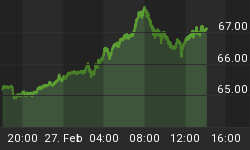The current year has seen a massive wave of regulatory pressure by the Chinese government on key strategic sectors of its economy. Beijing has tightened regulatory scrutiny on its roaring tech, gaming and energy sectors, ramping up pressure on tech titans such as Alibaba Inc. (NYSE:BABA) and Tencent Holdings (OTCPK:TCEHY).
The sector has been hit with a regulatory storm ever since Alibaba Group founder Jack Ma criticized his country's government last year for what he called excessive regulations. Beijing hit back by canceling the much-anticipated IPO of Ma's Ant Group--the world’s largest fintech--before putting the company through a "rectification" process and announcing it would henceforth "prevent the disorderly expansion of capital."
And now Beijing has moved to tighten rules for companies listing abroad.
Under the proposed guidelines, companies wishing to list in foreign stock markets must register with China Securities Regulatory Commission which will review their plans and coordinate with other agencies to ensure they fully comply with Chinese laws such as data security.
The wave of crackdowns has, in a matter of months, knocked off tens of billions of dollars from China’s pivotal tech sector, with the country’s biggest and most valuable public company, Tencent Holdings Ltd. losing its place among the world’s 10 largest companies by market value.
BlackRock Inc.’s iShares MSCI China ETF (NYSEARCA:MCHI), a fund that invests in a broad range of public equity markets of China, has tumbled 22.8% YTD while KraneShares CSI China Internet ETF (NYSEARCA:KWEB), an ETF that invests in China’s tech and internet stalwarts, has crashed nearly 50% over the timeframe.
Regulatory Burden
Under the new rules, companies whose sale of shares abroad is deemed to threaten national security, has internal disputes or other unresolved issues will be prohibited from making international stock offerings.
Meanwhile, U.S. authorities are demanding greater disclosure by Chinese companies coming to New York. Specifically, the U.S. Securities and Exchange Commission (SEC) requires companies to provide more information on their use of variable interest entities (VIEs), an investment model in which foreign investors hold shares in offshore companies and contractually control the Chinese operating companies.
The latest wave of crackdowns has been taking a heavy toll on the entire sector, with no less than five dozen New York-listed education companies devalued.
A couple of weeks ago, China’s ride-hailing giant DiDi Global Inc. (NYSE:DIDI) announced plans to delist from the New York Stock Exchange to pursue a listing of its class A ordinary shares on the Main Board of the Hong Kong Stock Exchange just months after the company’s disastrous IPO in June:
"After a careful study, the company will start delisting on the New York Stock Exchange immediately, and start preparations for listing in Hong Kong," the Chinese ride-hailing firm wrote on its Weibo account. DiDi’s terse, one-sentence announcement offered no explanation for the delisting, but came shortly after Chinese regulators asked top executives at DiDi Global to devise a plan to delist from U.S. stock exchanges. Recently, the Cyberspace Administration of China directed DiDi to work out precise details of taking the company off the New York Stock Exchange because of concerns about leakage of sensitive data, according to the report. Proposals under consideration include a straight privatization or a share float in Hong Kong followed by a delisting from the U.S.
Chinese regulators have all along been opposed to DiDi's U.S. listing as they fear it could expose Didi’s vast troves of data to foreign powers. DiDi pressed ahead with the June IPO anyway, in a move that Beijing construed as a direct challenge to its authority. Days after the listing, Beijing announced a cybersecurity probe into the firm and forced its services off domestic app stores.
Meanwhile, Tencent has announced that it will cut its ownership of JD.COM (NASDAQ:JD) to 2.3% from 17% of the company by distributing 457 million shares of stock through a special dividend to its shareholders in a bid to placate Beijing regulators.
In effect, Tencent will distribute $16bn worth of shares in the ecommerce outfit, the tech group’s first big move to unlock the value of its vast investment portfolio as Beijing steps up regulatory scrutiny.
But it appears that Beijing is still not happy with the current state of affairs.
According to a Bloomberg report, Beijing is planning to block Chinese companies from going public overseas through variable interest entities or VIEs. These are basically offshore holding companies that Chinese firms typically set up in places like the Cayman Islands to facilitate overseas listings. The ban has been included in changes in a new draft of China's overseas listing rules that may be finalized this month. Companies currently listed in the U.S. that use VIEs will also be required to make adjustments to their ownership structure. However, companies that are using the VIE structure can still go public in Hong Kong.
Back in July, Reuters reported that Chinese regulators were focusing on the VIE structure for overseas listings and how to better regulate them. The focus on the VIE structure comes as China attempts to reassert control over its popular Big Techs and tries to gain better control over data security.
















